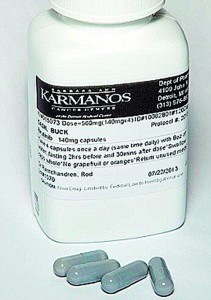Sunday Times 2
Could this be the end of chemotherapy?
A breakthrough international trial of a new cancer drug has given researchers renewed hope in the fight against leukaemia, with one Australian doctor suggesting it could end traditional chemotherapy treatments for good.
The results of a trial on 391 patients showed the drug Ibrutinib gave patients fighting a type of slow growing blood cancer called Chronic lymphocytic leukaemia (CLL) a 90 per cent chance of survival, eight higher than the 81 per cent who survive on chemotherapy treatment.

Dr Con Tam
What’s more, the drug is less invasive than traditional forms of radiation, and is an alternative for patients whose cancer cells have built up a resistance to chemotherapy. Results from the trial also showed that four out of every 10 patients entered remission within a year, compared to four in 100 on a traditional course of radiation.
Ibrutinib works by killing cells in Chronic lymphocytic leukemia patients and could be the perfect alternative to traditional chemotherapy treatments
The trial has Dr Con Tam of Melbourne’s Peter MacCallum Cancer Centre confident that Ibrutinib will eventually replace chemotherapy as the main treatment for leukaemia patients. He told AAP: ‘We might not need chemotherapy at all.’
Dr Tam said patients on the international trial responded quicker to the drug than chemotherapy and showed fewer side effects. What was also particularly encouraging was that patients who do not respond to, or have a resistance to chemotherapy treatments, now have an alternative.

is hopeful that Ibrutinib is the alternative answer to invasive chemotherapy treatments
‘These resistant patients have no other treatment option,’ the co-author of a New England Journal of Medicine report said. ‘This pill works extremely well when chemotherapy stops working.’
The drug, which works by by disabling an enzyme crucial for leukaemia’s survival, is currently being fast tracked for approval in the US and it could be just a year before Australians have access to it.
Although one of the rarest forms of cancer, CCL is the most common type of leukaemia and the older you are the higher the chance you have of developing it. Almost 80 per cent of all new cases are diagnosed in people over the age of 60.
It occurs more frequently in men than women, and because it develops slowly, many people don’t show symptoms in its early stages.
© Daily Mail, London

